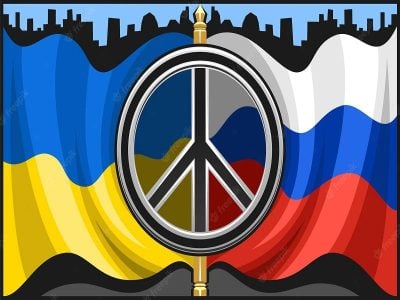Another Ukraine Summit So Soon Will be Wasteful, But India Can Help the Peace Process in Other Ways

Following the visit of India’s Prime Minister to Ukraine, there is ongoing discussion about whether India will be involved more actively in peace efforts, perhaps even in a peace summit.
In a report titled ‘After Zelensky proposes peace summit in India, New Delhi examines possibility’ The Indian Express reported on August 26,
“Ukraine President Volodymyr Zelenskyy has told Prime Minister Narendra Modi that India can be a possible venue for a peace summit, and New Delhi is examining the offer to bring together the warring parties of Russia and Ukraine, The Indian Express has learnt. At a media briefing for visiting Indian journalists in Kyiv on August 23, Zelenskyy said he told Prime Minister Modi that the peace summit could be hosted in India…Modi on August 23 conveyed to Zalenskyy that that both Ukraine and Russia should sit together without wasting time to end the ongoing war and that India was ready to play an ‘active role’ to restore peace in the region.”
Thus there appear to be two quite different proposals on the table. One is for a peace summit, as mentioned by the Ukrainian President. As one peace summit was recently held in mid-June in Switzerland, one would imagine that what is being proposed is something on a similar pattern, even if not exactly a follow-up of this. The second proposal, as mentioned by the Indian Prime Minister is for the leaders of the two sides to sit together for meaningful talks, a meeting which can be facilitated and hosted by India.
The second proposal of meaningful talks between two sides being hosted by India in a rather quiet way is eminently reasonable. Surely only something good is most likely to emerge if senior leaders of both sides can engage in discussing various aspects of clinching peace over a period of three days or so, perhaps a week, to start with, and if India can provide conducive conditions for this.
As this writer has been arguing persistently, the best way forward for the two sides is to agree to immediate ceasefire on the basis of the existing lines of control while all the other contentious issues including territorial ones can be resolved later in the course of prolonged peace negotiations. This way further loss of human lives can stop immediately and big reconstruction and rehabilitation work can start.
Anyway, all this is for the leaders of the two sides to decide. However as the mediating and hosting party, the Indian government should try to ensure that at least some meeting ground is agreed upon by both sides before their representatives come over to India for talks.
If there is at least some progress, India can also agree to host the next round of talks, if a request for this is received from the two sides.
In this rather quiet way, India can help to take forward the peace process.
On the other hand, the other proposal of a peace summit on the lines of the June peace summit in Switzerland should be firmly rejected by India, particularly if this is seen as a follow-up of the summit in Switzerland. This was a very expensive summit which failed to achieve anything significant. With Russia not invited, it was a very strange peace summit to start with and its limited possibilities were narrowed down further as it unfolded.
This is not to say that issues like food trade and safety of nuclear plants taken up by it were not important, these are certainly important but everything at the summit was one-sided. Proposals and decisions to be meaningful have to be discussed and advanced from the perspective of both sides.
Russia was not present. China also was not present. Other important countries like India, Brazil, Mexico and Saudi Arabia did not sign the joint communique that emerged at the end of the summit.
Switzerland did not exactly live up to its reputation of neutrality by hosting this summit. Indonesian President-elect Prabowo Subianto voiced the feelings of a lot of people when he said — many countries feel that in a peace summit all sides should be present, particularly Russia in this context. India’s diplomat Pavan Kapoor said that India could not sign the joint communique because “only those options acceptable to both parties can lead to abiding peace.”
Saudi foreign minister Faisal bin Farhan Al Saud said,
“it is essential to emphasize that any credible process will need Russia’s participation.”
Colombian President Gustavo Petro wrote on X that the summit’s “conclusions are already predetermined”.
Hence the Swiss Peace summit can by no means be considered as a model to be followed, and it will certainly not be advisable for India or any other country to organize a follow-up of this.
Clearly the basic task ahead is for Russia and Ukraine to have a number of meetings to repair their relations on the basis of the understanding that it is inherently more beneficial for the two neighbors to have a relationship based on friendship and cooperation. The war should end as soon as possible, and end on a note of friendship, and not frozen conflict. This understanding has to on both sides, and any third party like India can only facilitate the further peace process in various ways.
*
Click the share button below to email/forward this article to your friends and colleagues. Follow us on Instagram and Twitter and subscribe to our Telegram Channel. Feel free to repost and share widely Global Research articles.
One Month Before Global Research’s Anniversary
Bharat Dogra is Honorary Convener, Campaign to Save Earth Now. His recent books include Protecting Earth for Children, A Day in 2071, Planet in Peril and Earth without Borders. He is a regular contributor to Global Research.
Featured image source

